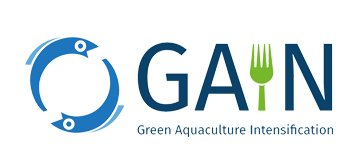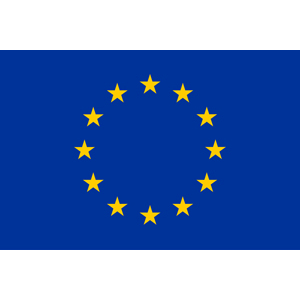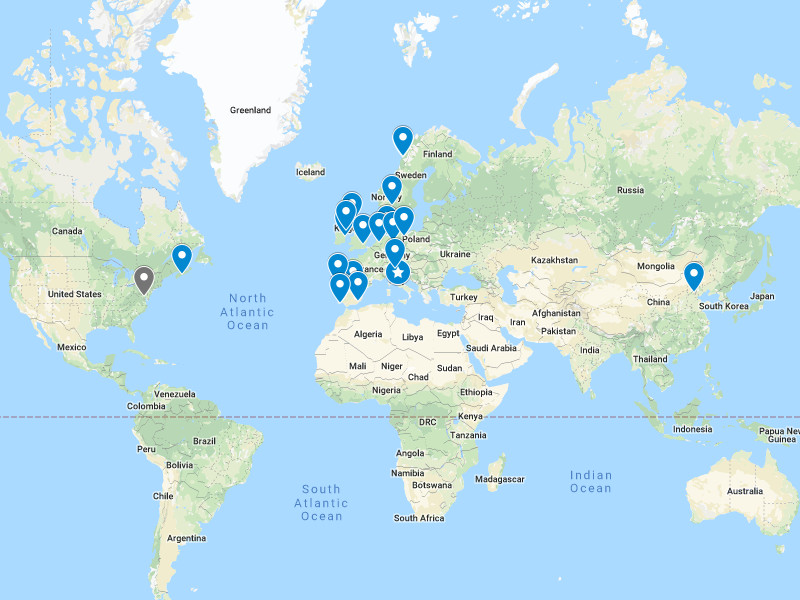GAIN H2020 project is designed to support the ecological intensification of aquaculture in the European Union (EU) and the European Economic Area (EEA), with the dual objectives of increasing production and competitiveness of the industry, while ensuring sustainability and compliance with EU regulations on food safety and environment.
Ecointensification of European aquaculture is a transdisciplinary challenge that requires the integration of scientific and technical innovations, new policies and economic instruments, as well as the mitigation of social constraints.
Successful eco-intensification of aquaculture will provide more and better aquatic products, more jobs, and improve trade balance by reducing imports.
GAIN, besides looking at innovative ways of integrating cultured species, will seek integration with other sectors, in order to promote the implementation of the principles of circular economy in Aquaculture.
News
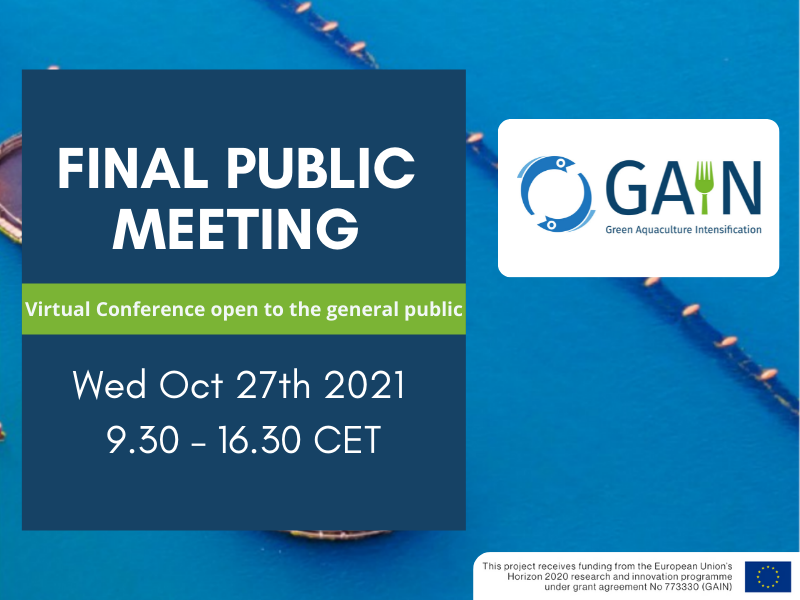
GAIN Final online Conference (public)
Online event
October 27th 2021, h 9.30 – 16.30 CET
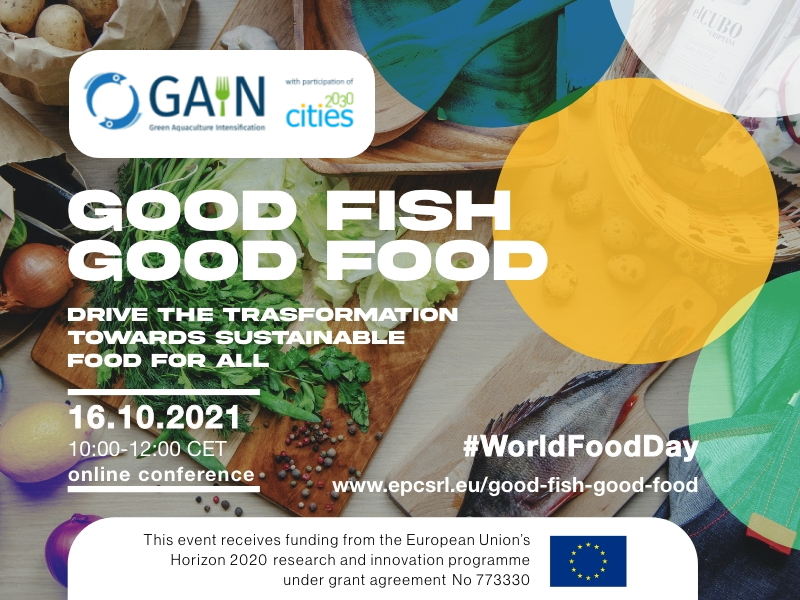
Conference “Good Fish – Good Food”
Online event
October 16th 2021, h 10-12 CET
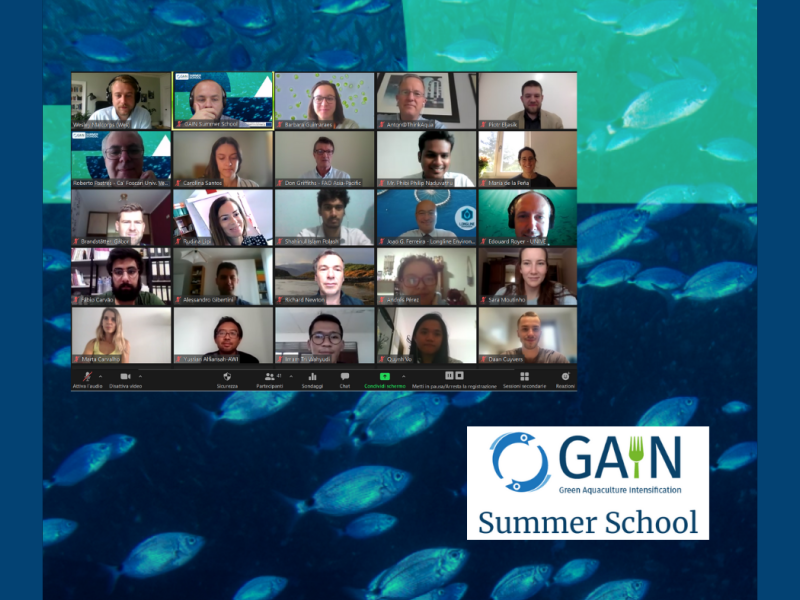
Great success for the GAIN Summer School
Online event
August 30th – September 3rd 2021
Consortium
The GAIN consortium aims to deliver the highest possible return on public investment and has been assembled through the integration of major public institutes and private companies which complement each other with respect to expertise and geographic coverage of regional seas and inland waters.
We bring together a group of 10 academic and research institutes, 8 companies, of which 6 are SMEs, and 2 non-profit organisations which will fulfil the project objectives through delivery of products tailor-made for industry, policy-makers, and the public. Furthermore, a USA governmental agency, namely the National Oceanic and Atmospheric Administration (NOAA) will collaborate to GAIN as international partner of Unive.
In order to achieve the transdisciplinary focus required for GAIN, the partnership includes large European and North American institutes-non-funded partners and an international partner from the United States and Canada will help GAIN exploit the potential of the Galway Agreement11 as well as international corporations, that cover multiple research areas in both the natural and social sciences, including relevant aquaculture disciplines (husbandry, welfare, carrying capacity modelling), oceanography, biotechnology, economics, sociology, computer science, and Big Data.
In addition, GAIN integrates mechanisms for comparing eco-intensification in the EU to contrasting models, such as the current trend for reduction of aquaculture in China, through the addition of the South China Sea Fisheries Research Institute, affiliated to the Chinese Academy of Fisheries Sciences (SCSFRI) as a non-funded partner, and the establishment of a Memorandum of Understanding with the Institute of Marine Research IMR (Norway) which has an ongoing institutional cooperation contract with the Yellow Sea Fisheries Research Institute.
A strong connection to commercial aquaculture, as well as market proximity, is obvious from the number of companies making up the consortium (6 SMEs, 2 large corporations, and 2 non-profit institutions-one of which a very large trade association).
The ten private sector partners provide important industry links to GAIN, including:
- feed design and feed trials for commercial feed companies;
- extensive experience with data processing, modelling, and connection to real-world problems;
- development of techniques to reduce, harvest and valorise side-streams (e.g. algae production in RAS and processing of finfish mortalities);
- connection to key actors for sector growth, including large investors and insurers.
Europe and North America face similar problems as they seek to expand aquaculture to guarantee food security of their citizens. The inclusion of two key US and Canadian institutions (a government agency and a
university) with internationally-renowned research e.g. in sensors, Big Data, production and side-stream modelling, and nutrient credit trading for shellfish, will also ensure strong links and mutual benefits under the Galway Framework.
Strategic Impact
GAIN will deliver products to support the European aquaculture industry and market, develop and optimize sustainable aquaculture intensification (eco-intensification), and create high-quality jobs in the blue economy, by combining cutting-edge social and natural sciences, state-of-the-art technology, and market proximity. GAIN products will be engineered to match specific needs, and the project defines appropriate targets and quantifiable indicators (see below) to ensure objectives are met. We will have key impacts25,26 on the eco-intensification of European aquaculture by making significant improvements in:
- feed sources and sustainable alternative aqua feeds;
- sensors, KPIs, and Big Data;
- policy support for integrated aquatic production;
- improvements in biosecurity and welfare;
- product traceability and certification;
- market access for small-scale producers.
Project structure
The GAIN workplan comprises 7 work packages. The first 4 implement the research activities for fulfilling the GAIN objectives and overarching goals. WPs 5 and 6 maximize the impact of GAIN, through training, communication, dissemination and exploitation. WP7 coordinates GAIN. An overview of each WP is provided below.


